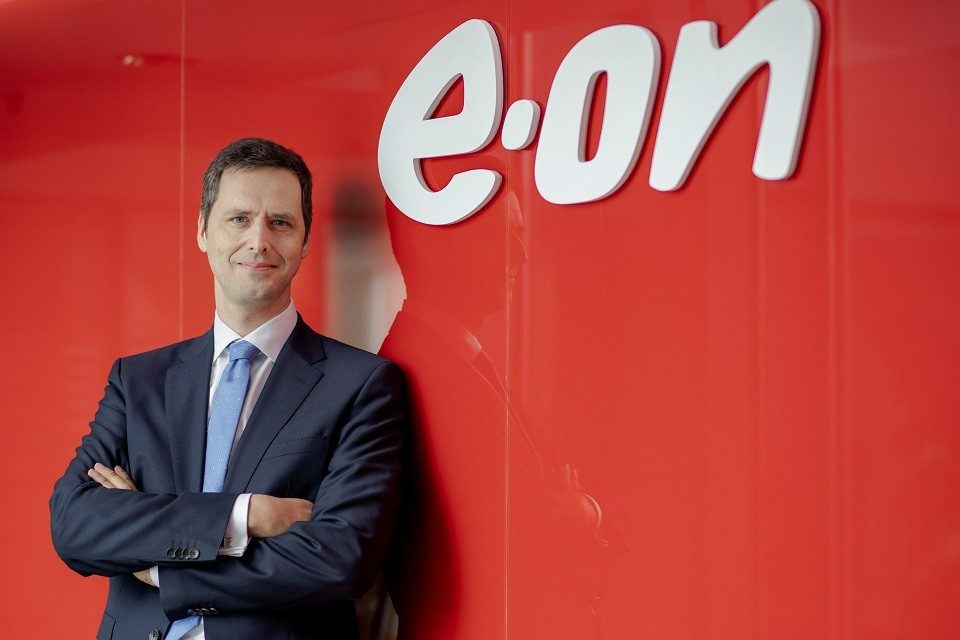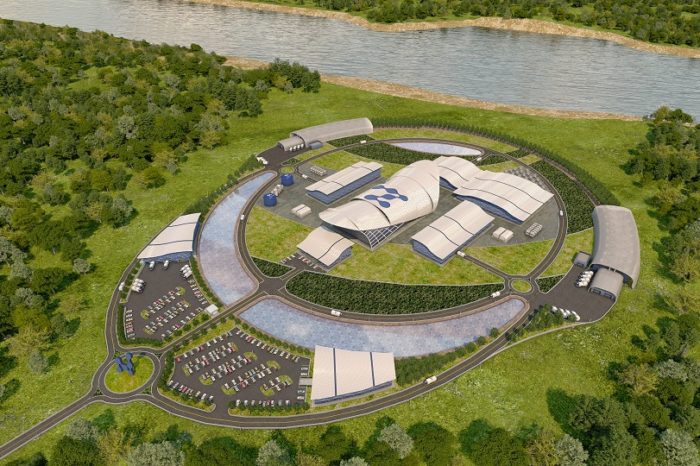INTERVIEW Volker Raffel, E.ON: “This decade is a unique chance for Romania to catch up with Western countries”

“We wish to keep investing in the Romanian energy sector, to strengthen its resilience and to turn it into a sustainable one – this being our main objective. About 200 million Euro are planned for investments this year at the E.ON Romania group level, the highest amount in the last 18 years,” Volker Raffel, CEO of E.ON Romania, told The Diplomat-Bucharest.
“We need to replace the old grids built in the 70’s, but unfortunately grids built in the 90’s already must be replaced as well. We need to extend the grids, connecting new customers. And in addition, distribution grids are the actual backbone of the energy transition. Thousands of renewable energy generation sources must be connected and, for that to be possible, grids need to be extended and reinforced. We need to invest in new technologies, in cybersecurity protection and to replace the infrastructure.”
How would you describe the evolution of E.ON Romania in 2022?
Last year was like an extreme rafting race on a completely unknown and very troubled river. The State had to intervene to address the social and the economic impact of the unprecedented price increase.
However, these 15 interventions in 14 months – in average it means more than 1/month – show that it took a while to find a balanced approach. If we would have had a better dialogue with those who had to implement the measures in the beginning, we could have managed situation better.
In between we have seen unbalanced approaches to supply companies. If we talk about critical infrastructure you may think about grids and producers, but this year you could realize: supply companies are a critical infrastructure, too, they collect the money from the customers only to the smallest extent for themselves (approx. 3.8 percent of the gas bill and about 9 percent of the electricity bill), but the rest for the whole energy sector: transport and distribution grid operators, producers as well as the state through taxes. If they would have had syncope in doing so, it would have put at risk the whole Romanian energy system. The contrary of what you need, especially in times of war in the neighborhood.
As E.ON, in no point of time we made an extra profit out of the crisis. In the contrary. We were legally forced to buy at high prices from Romanian producers or importers and pay higher taxes than ever to the state but forbidden to charge it to the customers. The state refunds us only with incredible delays, of several months, and even it does so it does it partially only.
Therefore, we were forced to take loans from banks – Lei 3 bn. in our case. The energy crisis took place everywhere in Europe, but Romania is the only country misusing energy companies as banks for its own task: social and economic policy. Therefore, E.ON booked its highest losses since its market entry, 18 years ago, due to state interventions.
We managed to ensure the power and gas supply to our 3.4 million customers. As E.ON we always sufficiently stored gas for the next winter, also before we were obliged to do so.
Now, if no new inappropriate measures are taken, we can go back to do our job: modernize Romanian infrastructure by using EU money, improving quality and making it fit for modern needs such as e-mobility, connecting more customers, prosumers and in gas for hydrogen and green gases. And to offer our customers possibilities to consume less energy with the same comfort with boilers using 30 percent less gas for the same heat, PV solutions or heat pumps using about a fifth of the energy compared to direct electric heating.
There is enough to do: let’s concentrate now on solving the real issues. Increase resilience of Romania through investments, energy efficiency and connecting more renewables.
What were your most important projects in 2022?
First, we kept our customers in our focus. We were market leader in issuing correct invoices in due time and explaining constantly all the legal changes to our customers, “best-in-class” already in the middle of the chaos in early 2022. But in that period even our call-centers and customer care centers were overloaded. We have fixed it. I am not saying we are perfect: when thousands of employees serve millions of customers, errors cannot fully be excluded, but our failure rate is record low.
And as important: we are really proud that we managed to keep our investments at a high level. Last year we invested 738 million RON (150 million Euro) out of which 673 million RON. (136.5 million Euro) in the power and gas grids, with considerable efforts. We relied on our own resources all through this period, when energy prices doubled, even tripled, while we did not transfer these costs to our consumers.
E.ON exceeded last year the level of Euro 2 bn. of investments in Romania, since its entered the market back in 2005. This is a symbolic landmark which comes to show that we are fully aware of the long-term character of our activities. Be it in operating and improving Romanian infrastructure, be it that we always strive to long-term relationships with our customers.
Furthermore, I would like to mention a figure which tends to unrightfully get by unnoticed, i.e. the amount of 3 billion Euro, representing the taxes transferred to the state budget during all these years. Moreover, we are supporting the local economy, providing thousands of work places, as E.ON is a significant partner to over 20,000 companies in Romania.
One of our targets was that our 3.4 million customers get supply and distribution services at European standards. We invested around Euro 1.6 bn. on the distribution side, most of this amount (60-70 percent) strictly in the modernizing of the grid components. Further significant investments were made for grid extensions and digitalization, which led to the significant reduction of reaction times in case of outages.
The results of the investments made year after year can be seen in the increase of safety and quality of the distribution service. Thus, in 2021, the company achieved the shortest duration for unplanned interruptions in the supply with electric power in Romania, i.e. 89 minutes, while last year this indicator was even lower, i.e. 76 minutes. This is 24 times better than the 1,800 minutes/year in 2005, before privatization. Great progress has also been made on the gas side, where the technological consumption on the grid was reduced by 57 percent by comparison to 2012. The reducing of technological consumption by 587 GWh equals the annual consumption of a town of about 100,000 inhabitants, like, for instance Satu Mare.
What are your most important projects for this year?
We wish to keep investing in the Romanian energy sector, to strengthen its resilience and to turn it into a sustainable one – this being our main objective.
About Euro 200 mio. are planned for investments this year at the E.ON Romania group level, the highest amount in the last 18 years.
Let’s start with Delgaz Grid, our network operator. We need to replace the old grids built in the 70’s, but unfortunately grids built in the 90’s already must be replaced as well. We need to extend the grids, connecting new customers. And in addition, distribution grids are the actual backbone of the energy transition. Thousands of renewable energy generation sources must be connected and, for that to be possible, grids need to be extended and reinforced. We need to invest in new technologies, in cybersecurity protection and to replace the infrastructure.
As you know, the distribution tariffs – the only income of a distribution company – were frozen for one year, even though the costs increased significantly. But we continued to invest. Of course, this is possible only for a limited time. Now, unfortunately we need a tariff increase, but: on the one hand this happily will not impact the customers profiting from the price cap. And on the other hand, this is well invested money. The distribution tariffs are only a small part of the energy bill, but they are key to increase the offer of electricity in Romania, which will help to finally reduce the bill again.
Connecting renewables in the current speed will already help a lot to have more cheaper energy available in Romania in next winter. To enable this – and distribution grids are the key for new technologies and greener energy, we will increase our investments: On the distribution side, the amount of 185 million Euro. has been planned for investments for this year, 36 percent more than last year. We already are number 1 in using EU funds. Here we go to next level: we want to use 700 million Euro EU funds until the end of the decade for doing so we do not need to charge it to customers, each sum being financed by the EU. But it will help to further improve the quality of supply.
And to have a look on our sales company, E.ON Energie Romania. Especially the crisis confirms that we developed offers our customers need: efficient cooling solutions, heat pumps, by far more efficient gas boilers. In 2023 we will continue our growth in photovoltaics – we already grow quicker than the market and strive to continue to do so!
What are your plans regarding green energy and sustainability initiatives in 2023?
Renewable energy sources are essential. They are the cheapest and cleanest form of energy available and may contribute to the stabilizing and even decrease of prices over time.
E.ON will use the resources in a targeted manner, for promising projects, like customer solutions.
The demand for our solutions boomed during 2022. All our solutions developed for household consumers – PV generation, heat pumps, charging stations, condensing boilers, cooling solutions – have been gathered under the ”Future Energy Home” umbrella and are meant to increase the level of comfort, energy independence, to reduce carbon emissions and to make energy consumption more efficient.
We have obtained some good results: 865 PV units installed, of which more than 650 during 2022, around 40,000 condensing boilers installed, of which almost 10,000 during 2022, we have reached a number of 235 operational charging stations, of which 76 set into operation during last year.
As far as non-household consumers, small enterprises, key accounts, and municipalities are concerned, our solutions address their current, but also future needs: energy independence, energy efficiency increase, lower bills, obtaining a competitional advantage on the market, reducing CO2 emissions etc.
The demand for our solutions has strongly increased on this segment as well, for instance: 127 PV units were turnkey ready last year, three times as much by comparison to 2021. We reached a total of over 250 PV projects finalized in Romania. The production of renewable energy units goes up to a total of over 50,000 MWh/year, with a CO2 reduction of 27,500 CO2 tons/year. As far as public lighting is concerned, efficient LED technology systems which bring serious savings for local budgets were finalized last year in over 40 localities.
As far as grids are concerned, the number of prosumers connected to the network of Delgaz Grid has boomed during the last few years, from only 67 in 2020 to almost 5,500 at the end of last year. The estimations for this year show us that we will have around 10,000 integrated prosumers! And I am proud that we have only few and short delays in doing so, while we hear about problems in other regions. But also, we work on further improvements, as the demand grows incredibly.
Which are your expectations for the Romanian energy industry in 2023, anticipated challenges?
I would not like to see again what happened last year, and by that, I mean 15 legislative changes with major impact on the energy sector. Now there is a concept that works, and we all need to focus to solve the challenges in substance, by concentrated working on grids and offering solutions to the customers.
Currently Romanian authorities work on storing far more gas for next winter, which is the right thing to do. This is a strategic national reserve in the European regional interest and can not only be imposed to national players, which already pre-finance the whole support package. Here Romania still needs to find a solution how to finance it, which currently is under discussion.
As a lot of work must be done, it is important to have a stable, predictable, and transparent legislative frame. If further developments would require a change, it must be thought through before implementing, based on a serious dialogue.
What are your main concerns for the foreseeable future?
Let’s be very clear: the crisis is not yet over! In this moment, it works, but we must be aware that we still find ourselves in a very volatile context, with multiple crises and unpredictable developments, and many risk factors are beyond our control. As we have already seen, nobody in Europe predicted that Russia would attack Ukraine, as well as nobody could predict the energy crisis with all its consequences.
My main concerns are related to geopolitical factors. Still Europe is importing also Russian gas. Also, the LNG prices could rise if China restart to import.
Therefore, it is – next to follow up a long-term energy strategy by the government – of utmost importance to continue a) the ongoing investments into the grids to connect renewables and b) further energy savings through energy policy.















